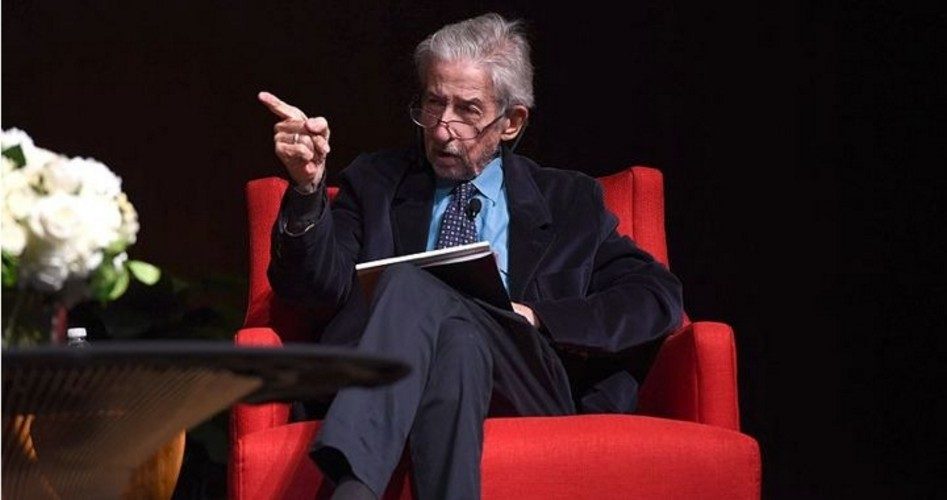
On Sunday Tom Hayden, after falling ill while attending the Democratic Party’s convention in July, passed away, according to his third wife, Barbara Williams.
Hayden left behind a legacy that included forming the radical group Students for a Democratic Society (SDS) and writing its 25,000-word manifesto, the Port Huron Statement.
He took to heart his determination to change American society, conspiring with several others, including Rennie Davis, Abbie Hoffman, and Jerry Rubin, to disrupt the Democratic National Convention in Chicago in 1968. He along with the others were convicted of inciting a riot (which lasted five days and resulted in injuries to hundreds of protestors and police officers and massive damage to private property) and sentenced to five years in jail. His conviction was overturned as a wave of radicalism overcame the willingness of courts to enforce the law.
He made several trips to Vietnam during the Vietnam War to protest the war, some with known communists and one, for which he is perhaps best known, with Jane Fonda, who later became his second wife.
Beginning in the 1980s, Hayden served as a California assemblyman for 10 years and then as a state senator for another eight years, promoting progressive policies. He served on the advisory board of the Progressive Democrats of America, a group that sought and achieved increased progressive influence in the Democrat Party.
In 2008, he endorsed President Obama for president and helped form Progressives for Obama, now called Progressive America Rising, an action group that supported Obama’s successful presidential campaign.
In its careful and restrained eulogy, the New York Times selected a quote from his Port Huron Statement, written in 1962, as a touchstone of his life:
We are the people of this generation, bred in at least modest comfort, housed now in universities, looking uncomfortably [at] the world we inherit. [We call for] participatory democracy [and a society based on] fraternity … honesty … [and] brotherhood.
The Times didn’t mention that Hayden held that violence was needed in order to achieve that nirvana. In 1967, Hayden wrote: “Perhaps the only forms of action appropriate to … angry people [is] violence. Perhaps a small minority, by setting ablaze New York and Washington, could damage this country forever in the court of world opinion. Urban guerillas are the only realistic alternative at this time to electoral politics or mass armed resistance.”
The Times also failed to report on an article he wrote that appeared in its New York Review of Books in August 1967:
The role of organized violence is now being carefully considered. During a riot, for instance, a conscious guerrilla can participate in pulling police away from the path of people engaged in attacking stores. He can create disorder in new areas the police think are secure. He can carry the torch … to white neighborhoods and downtown business districts. If necessary, he can successfully shoot to kill.
The guerrilla can employ violence effectively during times of apparent “peace,” too. He can attack, in the suburbs or slums, with paint or bullets, symbols of racial oppression. These tactics of disorder will be defined by the authorities as criminal anarchy. But it may be that disruption will create possibilities of meaningful change…. Violence can contribute to shattering the status quo, but only politics and organization can transform it.
His legacy will continue with the publication of his book, Hell No: The Forgotten Power of the Vietnam Movement, which will be published early next year, courtesy of Yale University Press.
An Ivy League graduate and former investment advisor, Bob is a regular contributor to The New American magazine and blogs frequently at LightFromTheRight.com, primarily on economics and politics. He can be reached at [email protected].

